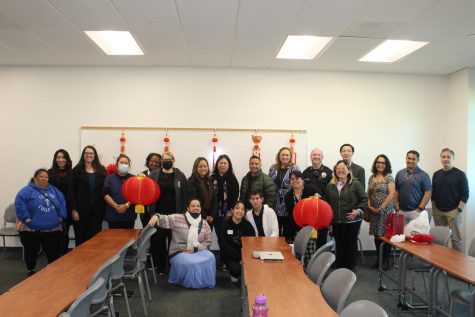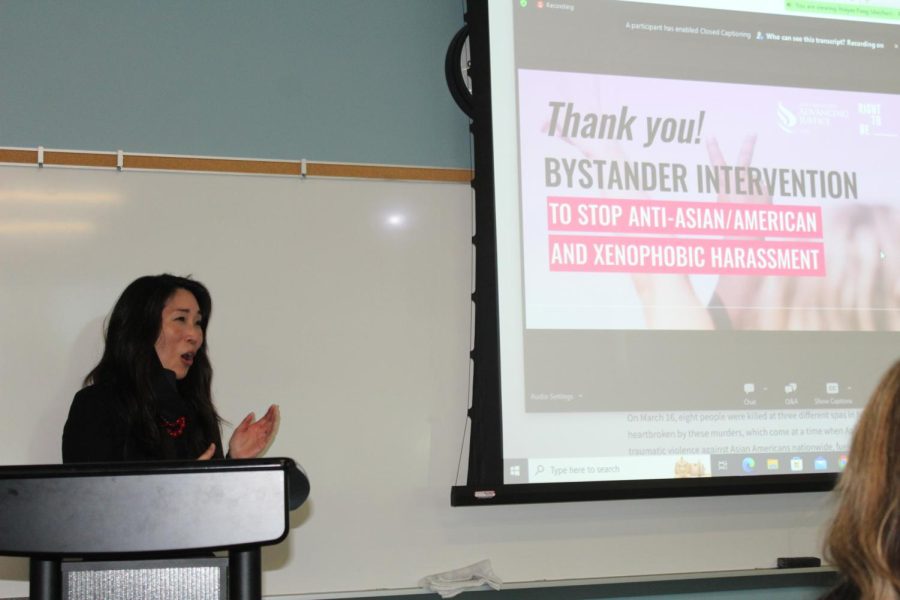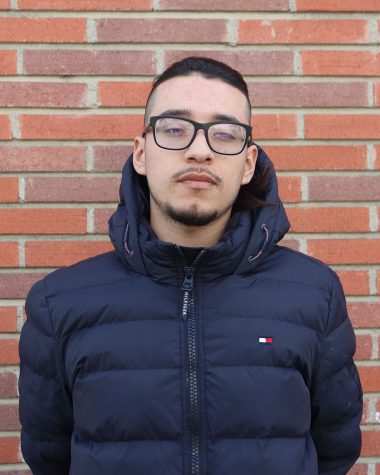The Asian Pacific Islander Desi American (APIDA) held a workshop on Wednesday at the Liberal Arts Building, where people discussed the issues of racism and xenophobia amongst Asian people.
Those who attended the workshop spoke out on why these types of issues not only affect Asians, but every minority group.
A few faculty members and students were willing to talk about their personal experiences and why workshops could prevent tragedies from occurring.

Wei Zhou, vice president of academic affairs said, “Today we are talking about anti-asian racism or anti-asian events. But if you think about it, it’s still happening in this country.”
“And not only anti Asian we’ve seen, but anti immigrants, anti people of color and people with underprivileged backgrounds,” Zhou added.
During the social interaction, a study was brought up on the hate crimes against Asian Americans.
“Hate crimes or hate incidents in the period from January 2021 through early March 2022—from 17 percent among Black adults, to 16 percent among Asian Americans, 15 percent among Native Americans, 14 percent among Native Hawaiians and Pacific Islanders, and 13 percent among Latinos.”
“If we are not willing to be there or to correct it will happen again, and again,” Zhou said, “Today it may happen to this group, and the next day other groups.”
“Because in our minds we categorize people based on their color, race, background and where they’re coming from,” Zhou points out, “So that’s why workshops like this are important, not only talking about the impact on Asian Americans and other groups as well.”
Most recently there was a tragedy by Monterey Park involving a mass shooting amongst the Asian community.
Traci Ukita, counselor at Cerritos College, was asked about her thoughts of the incident and benefiting from a workshop regarding racism, xenophobia, etc.
“They are extra amplified because of the multiple years in a row that we’ve seen arise in hatred in violence acts against Asians and Asians American,” Ukita said.
“So it just amplifies some of the feelings that the community has experienced feeling very unsettled, upset, scared, fearful…”
Wkita continues to express,“ … so I think these sorts of workshops/bystanders interventions might help reach out to people before it escalates that much.”
“Yet at the same time, when it’s an extreme event like that too, I don’t know if a bystander intervention is really the training that we receive today going to help when it’s escalated to that level.”
During the hard discussion, another faculty member was willing to weigh in on the conversation. Lynn Wang, faculty and CCFF president at Cerritos College, answered why workshops are useful.
“I guess every situation is different,” the CCFF President said, “So this may not be able to prevent it 100 percent, but I think for all of us, not just being Asian.
“In many situations, we all experience bullies in life right or things we are not comfortable continue to witness … So then at least we walk away learning and knowing that okay there are things I can do.”
Zhou also expressed the importance of attending a workshop as he talked about people not understanding or being aware.
He argued that people may assume that others are hung sensitive, but it’s more about the experience in which a person goes through.
A student by the name of Flamenco Medina, a political science major, spoke about his family going through a similar experience.
“… Growing up my family only spoke Spanish, they didn’t know English,” Medina said, “My mother faced not just even racism, faced everything you could think of.”
“Discrimination, sexism, hate violence and she was bullied throughout school because she didn’t know English and she was Hispanic … my family has been through that and friends ….”
The majority of the people in the meeting respectively said Cerritos College was helping, but they need to provide more resources and in out a bit more in general.










